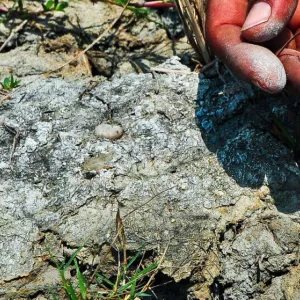A newly identified elite pool of salinity-tolerant genotypes promises to deliver higher genetic gains
A new study identified an elite pool of the best salinity-tolerant genotypes that will provide scientists at the International Rice Research Institute (IRRI) with a readily available genetic resource to speed up the development of salt-tolerant rice varieties and boost genetic gains. Genetic gains in IRRI’s rice salinity breeding and elite panel development as a future breeding resource , recently

A newly identified elite pool of salinity-tolerant genotypes promises to deliver higher genetic gains
A new study identified an elite pool of the best salinity-tolerant genotypes that will provide scientists at the International Rice Research Institute (IRRI) with a readily available genetic resource to speed up the development of salt-tolerant rice varieties and boost genetic gains.
Genetic gains in IRRI’s rice salinity breeding and elite panel development as a future breeding resource , recently published by the journal Theoretical and Applied Genetics, was undertaken to estimate the genetic trends in the IRRI’s salinity breeding program and identify top-performing rice genotypes as future genetic resources for breeding the new salinity tolerant genotypes for saline prone areas.
Genetic gain, which is the improvement in the average genetic value of a population over multiple breeding cycles, is an important parameter to check the progress of breeding programs and measure their efficiency. Genetic gains in rice under salinity environments at the global level have never been estimated. In this study, a tremendous effort was made to collect the big historical data of IRRI’s rice salinity breeding, pre-process it, and put it in the analytical framework to estimate the genetic gains. In addition to estimated genetic gains, top-performing genotypes based on high breeding values for grain yield were identified as a future elite breeding resource.
Millions of hectares of land suitable for rice cultivation in South Asia, Southeast Asia, and Africa produce lower yields due to soil salinity. The coastal regions of South and Southeast Asia, which account for 65% of global rice production, are heavily affected by increasing salt-water intrusions as a direct consequence of climate change.
Moreover, future rice production will rely heavily on irrigation, which also contributes to increasing soil salinity. Thus, the rapid development of high-yielding salt-tolerant varieties with better adaptation to the changing climatic scenarios is crucial to global…

